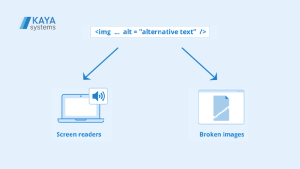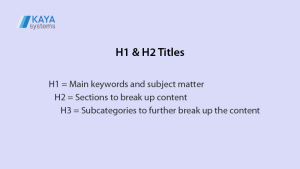
Ranking higher on Google search results in 2023 requires a comprehensive and dynamic approach, as search engine algorithms are constantly evolving. First and foremost, prioritize creating high-quality, valuable content that addresses the needs of your target audience. Conduct thorough keyword research using tools like Google Keyword Planner and incorporate relevant, long-tail keywords naturally into your content. Aim to provide in-depth and well-structured articles, blog posts, and other forms of content that stand out from the competition.
Next, focus on optimizing your website’s technical aspects. Ensure that your site is mobile-friendly, as Google heavily emphasizes mobile responsiveness. Improve page loading speed by compressing images and leveraging browser caching. Implement structured data markup to enhance the visibility of your content in rich snippets and other search features. Additionally, regularly update and maintain your website, fixing broken links and resolving any technical issues to create a positive user experience.
In 2023, user experience will continue to be a crucial factor in search rankings. Prioritize intuitive navigation, clear calls-to-action, and visually appealing design to keep visitors engaged and reduce bounce rates. Consider leveraging multimedia elements like videos and infographics to enhance user engagement. Furthermore, build a strong backlink profile by obtaining high-quality, relevant links from reputable websites in your niche. Guest posting, creating shareable content, and networking with influencers can help you attract valuable backlinks. However, be cautious of black-hat link-building practices, as Google penalizes such tactics.
What Is Search Engine Optimization?

Search Engine Optimization (SEO) is an essential digital marketing strategy that plays a pivotal role in today’s online landscape. In a world where the internet is the primary source of information, SEO holds the key to enhancing a website’s visibility and attracting organic traffic from search engines. By strategically optimizing various aspects of a website, businesses and content creators aim to improve their rankings on search engine results pages (SERPs). This, in turn, enables them to reach their target audience effectively and compete in a competitive online marketplace.
The significance of SEO lies in its ability to bring in valuable and relevant traffic. When users search for specific keywords or phrases, search engines like Google, Bing, or Yahoo scour the web to deliver the most relevant and authoritative results. Websites that are well-optimized for SEO have a higher chance of appearing on the first page of search results, increasing the likelihood of attracting clicks and visitors. Moreover, SEO not only benefits businesses and website owners but also serves as a valuable tool for users. By delivering accurate and meaningful search results, SEO ensures that users find the information they seek more efficiently, enhancing their overall online experience. As a result, it fosters trust and credibility between users and the websites they visit, as higher-ranked sites are often perceived as more reliable and reputable sources of information.
In the following sections, we will delve deeper into the core concepts and strategies behind effective SEO services. We will explore the key elements that influence search engine rankings, the best practices to optimize a website, and how to stay up-to-date with the ever-evolving landscape of SEO. Whether you are a business owner, marketer, or content creator, understanding and implementing techniques is essential to stay competitive and succeed in the digital realm. So, let us embark on this journey into the world of SEO and unlock the secrets to driving organic traffic and reaching a broader audience.
Quality Ranking Factors ( QRFs )
- Website Security:

Website security is crucial for both search engines and website visitors. Search engines prioritize secure websites to ensure a safer online environment for users. Implementing HTTPS encryption and having a valid SSL certificate adds a layer of data protection, ensuring that sensitive information exchanged between the user’s browser and the web server remains secure and encrypted. A secure website is less vulnerable to cyber attacks, such as hacking and data breaches, which can negatively impact user trust and search engine rankings.
- H1 Keywords:

The H1 tag is one of the most significant HTML heading tags, indicating the primary heading of a webpage. Including relevant keywords in the H1 tag helps search engines understand the main topic or subject matter of the page. It is essential to choose concise and accurate H1 keywords that align with the content of the page and target the audience’s search intent. Proper usage of H1 keywords can enhance the page’s visibility in search results for relevant queries and improve overall SEO performance.
- Core Web Vitals:
Core Web Vitals are specific metrics introduced by Google to assess the user experience of a website. These metrics include:

– Largest Contentful Paint (LCP): Measures the loading speed of the largest element on the viewport, aiming for a quick load time (typically within 2.5 seconds).
– First Input Delay (FID): Evaluates the responsiveness of the website by measuring the time from a user’s first interaction (e.g., clicking a link) to the browser’s response.
– Cumulative Layout Shift (CLS): Gauges the visual stability of a webpage by measuring unexpected layout shifts during the page load. A low CLS score ensures that elements don’t shift around, providing a smoother user experience.
- The Length of Your Content:

Content length plays a role in SEO and user engagement. Longer, comprehensive, and well-structured content tends to rank better in search results. This is because longer articles often cover topics more comprehensively, providing valuable information to users. Search engines recognize this and reward such content with higher rankings. However, the focus should be on quality rather than just length; content should be relevant, informative, and engaging.
- Page Loading Speed (Via HTML):
Page loading speed is a critical factor that directly impacts user experience and search engine rankings. A faster-loading webpage enhances user satisfaction and reduces bounce rates. Optimizing HTML, compressing images, minimizing CSS and JavaScript, and leveraging browser caching are some techniques to improve page loading speed. Google and other search engines prioritize websites that load quickly, as they aim to provide the best possible user experience to their users.
- The Number of Backlinks:
Backlinks, also known as inbound links, are links from external websites that point to your website. They are crucial for SEO, as search engines consider them as a vote of confidence or trust in your content. High-quality and relevant backlinks from authoritative websites can significantly boost your website ranking. However, it’s important to focus on earning natural backlinks through valuable content rather than resorting to questionable link-building practices, as search engines penalize manipulative tactics.
- Internal Linking:

Internal linking involves connecting pages within your website through hyperlinks. This practice improves website navigation, helps distribute link equity across pages, and establishes site architecture, making it easier for search engines to crawl and index your content. Additionally, internal links help users discover more content, enhancing their overall browsing experience. Strategically placed internal links can also improve the visibility of specific pages on your site.
- User Experience (RankBrain):

RankBrain is a machine learning-based algorithm used by Google to better understand user search queries and deliver more relevant search results. It evaluates user behavior, such as click-through rates, bounce rates, and dwell time, to determine how well a page meets user intent. To optimize for RankBrain, focus on providing high-quality, user-focused content that satisfies searchers’ queries, leading to increased engagement and better search engine rankings.
- Mobile Usability:

With a significant portion of internet traffic coming from mobile devices, mobile usability is crucial for SEO. Websites that are mobile-friendly and responsive offer a better user experience on smartphones and tablets, leading to higher engagement and lower bounce rates. Google considers mobile-friendliness as a ranking factor and even uses a mobile-first indexing approach, where the mobile version of a site is given priority in search results over its desktop version.
- Domain Authority:
Domain Authority (DA) is a metric developed by Moz that predicts how well a website will rank in search engine results. DA is influenced by factors like the quantity and quality of backlinks, website age, and content relevance. A high DA indicates that the website is authoritative and trustworthy in its niche, leading to better search engine visibility. It’s essential to focus on building a strong online presence and earning quality backlinks to improve your website’s domain authority over time.
By understanding and optimizing for these Quality Ranking Factors (QRFs), website owners and digital marketers can enhance their chances of achieving higher search engine rankings and ultimately drive more organic traffic to their sites.
How to Get Higher Ranking on Google Search Results?
- Create More Long-Form Content:
Long-form content refers to comprehensive, in-depth articles that cover a topic extensively. Google values content that offers substantial value to users, and longer articles tend to include more relevant keywords and subtopics, leading to higher rankings and increased user engagement. Focus on quality and relevance when creating long-form content.
- Optimize Your Content for Featured Snippets:

Featured snippets are concise answers displayed at the top of Google’s search results. To optimize for them, identify common questions related to your content and provide clear, structured answers. Use bullet points, numbered lists, and structured data to increase the chances of your content being featured.
- Switch to HTTPS:

HTTPS encryption ensures a secure connection between users and your website, protecting sensitive data from potential threats. Google prioritizes HTTPS websites as they are considered more trustworthy. Obtain an SSL certificate for your website and update internal links and resources to use the secure protocol.
- Focus on Search Intent:
Align your content with user search intent. Understand what users are looking for and create content that precisely matches their queries. Providing relevant and valuable content improves your chances of ranking higher in search results.
- Optimize All The Critical Elements on Your Web Pages:
Ensure key elements like headings, meta descriptions, title tags, and URLs are optimized with relevant keywords. These elements provide vital information to search engines about your content’s relevance to user queries.
- Alt Text:

Add descriptive alt text to images to help search engines understand what the images represent. This enhances accessibility for visually impaired users and improves your website’s overall SEO.
- H1 & H2 Titles:

Use H1 tags for main headings and H2 tags for subheadings to organize your content effectively. This helps search engines comprehend the structure and hierarchy of your page’s content.
- Meta Description:
Craft compelling and concise meta descriptions that include relevant keywords. Meta descriptions appear in search results and encourage users to click through to your page.
- Page Title:

Create concise, descriptive page titles with relevant keywords. The page title is displayed at the top of the browser window and significantly impacts search engine visibility.
- Image Optimization:
IMAGE
Optimize images for faster loading times and a better user experience. Compress images without compromising quality, use appropriate formats, and include descriptive file names and alt text for each image.
- Optimize Your Anchor Texts (All of Them):
Use descriptive and relevant anchor text for hyperlinks. Avoid generic phrases like “click here” and use natural anchor text that accurately represents the content of the linked page.
- Generic Anchor Text:

Generic anchor text includes common phrases like “click here” or “read more.” Minimize their use as they provide little context to search engines.
- Exact Match Anchor Text:
IMAGE
Exact match anchor text uses the exact target keyword as the hyperlink. Use it sparingly and naturally to avoid over-optimization penalties.
- Get Your Business Listed on Google My Business:
Optimize your Google My Business listing with accurate business information, reviews, and relevant keywords. This helps your business appear in local search results and Google Maps.
- Create a Strategic PPC Strategy:

Develop a well-optimized Pay-Per-Click (PPC) strategy to complement your organic SEO efforts and drive targeted traffic to your website.
- Optimize Your Twitter Profile for Google SERPs:
Include relevant keywords, a clear bio, and a link to your website in your Twitter profile to increase visibility on Google’s search results.
- Use Search-Friendly URLs:

Create short, descriptive, and user-friendly URLs that include relevant keywords. Clear URLs help both users and search engines understand the content of the page.
- E-E-A-T (Experience, Expertise, Authoritativeness, and Trustworthiness):
Demonstrate expertise, authority, and trustworthiness in your content to improve search rankings. Providing accurate information, citing reputable sources, and showcasing expertise in your field positively impact your website’s E-E-A-T.
In A Nutshell
Achieving a higher ranking on Google search results starts with a strong foundation, which is your website. It’s crucial to optimize the structure of your site to align with Google’s organic ranking factors. Additionally, ensuring that your website is user-friendly, fast-loading, and mobile-responsive is essential. By providing a seamless user experience, you not only impress visitors but also catch the attention of search engine algorithms. Keep in mind that making a positive first impression is vital, and a well-optimized website sets the stage for success, leading to higher rankings on Google.
However, having a visually appealing website alone won’t guarantee top positions on search results. You need to incorporate relevant keywords strategically throughout your content. These keywords act as the magical phrases connecting search queries to your website’s content. The focus should be on natural integration, enhancing readability, and engaging both human users and search engines.
Staying updated with the latest trends and algorithm changes is equally important in your quest to rank higher on Google. Google’s algorithms are complex and constantly evolving, meaning strategies that work today might not be effective tomorrow. Embracing continuous learning, following reputable SEO blogs, and being adaptable in your approach are vital aspects of achieving better search rankings.
Remember that SEO is a long-term process, not a quick fix. It requires patience, perseverance, and the willingness to adapt to the ever-changing digital landscape. By implementing these tips and tricks and creating captivating content, you can improve your chances of ranking higher on Google search results. Just keep in mind that seeing the results may take time, so patience is key.
Tags: SEO Copywriting Agency


 Jul 26 2023
Jul 26 2023  Posted by: admin
Posted by: admin  Posted in
Posted in